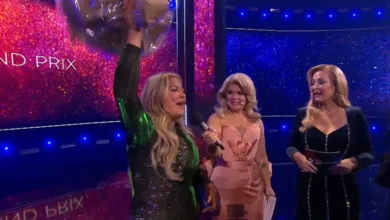BRIC(ks) of Bond Street
 The summer is back, and so is 007. I am suddenly reading “From Russia With Love” (great new cover art on a Penguin edition). I track down Bond films I have not seen yet (who on earth is Lazenby?). The other day, on the Eurostar, I even daydreamed of visiting the Fleming exhibit at the Imperial War Museum. You know those daydreams in the tunnel, when your phone stops working? The only time on a trip to London when one can afford to breathe freely and not worry about the ticking counter of the cab, the mounting bill of the hotel, the pennies you pay for the air you breathe. Sometimes I wonder if one can only enjoy London from afar – for a business trip to this city must, by necessity, be squeezed into 24 hours of torrential downpour, astronomical prices and a sigh of relief when back on the train you think of all the things you could have done, and might do when you come back.
The summer is back, and so is 007. I am suddenly reading “From Russia With Love” (great new cover art on a Penguin edition). I track down Bond films I have not seen yet (who on earth is Lazenby?). The other day, on the Eurostar, I even daydreamed of visiting the Fleming exhibit at the Imperial War Museum. You know those daydreams in the tunnel, when your phone stops working? The only time on a trip to London when one can afford to breathe freely and not worry about the ticking counter of the cab, the mounting bill of the hotel, the pennies you pay for the air you breathe. Sometimes I wonder if one can only enjoy London from afar – for a business trip to this city must, by necessity, be squeezed into 24 hours of torrential downpour, astronomical prices and a sigh of relief when back on the train you think of all the things you could have done, and might do when you come back.
Back to the Bond-mania. I’d like to think of it as my own free will. Perhaps I am even tapping into the collective subconscious, which at this time desperately needs a Bond? We have hurricanes, volcanoes, earthquakes, juntas, elected tyrants, volatile nuclear reactors, famine, burning oilfields, crumbling dollar and explosive Olympics. Aren’t we all Ms Moneypennies wishing James would save the day?
Yet my cynical mind suspects the truth. The new Bond flick just wrapped production. Operation Broccoli has begun, and the symptoms I experience are a reflection of mass inebriation to come, spread and finally explode around November 7. 007 is one of the strongest brands in the world, the only story that can count 21 sequels on film alone. Bond books are still being written and published. Serious writers jump at the opportunity to channel that one spectacular lonely man who once poured his alter-ego on paper in a Jamaican hideaway – Ian Fleming himself.
One would think that the Bond franchise might fade away with the last reminders of the Cold War, the indifference of digital natives to Aston Martins or Bollinger champagne and the rejection of Bond girl archetype by both empowered women and disempowered metrosexuals. One would be wrong. I believe James Bond is just coming of age. He is the prophet of the new millennium. He is the disenchanted consumerist, the cynical idealist, the cosmopolitan loner, the patriotic outsider, a man with so much respect for life that he is ready to die rather than be bored.
Critics praised the tweaking of his image in the latest Bond film as a comeback to the original Bond, the one designed by Fleming. It’s true that the literary 007 is hardly the lucky playboy of Broccoli’s early pictures. But he is also not the embittered shell of the latest holder of License to Kill. Fleming’s Bond is someone deeply interested in the world around him. His sense of life, heightened by constant danger, revels in views from a Swiss train, mosquito bites in third-class Istanbul hotel and plane turbulence as it passes through the eye of a storm. Despite the permanence of loss that surrounds him, he is always open to friendship and love. The very knowledge of loss infuses his excitement for the good things of life. As a true anti-snob, he revels in the expensive, the well made, the truly luxurious – without ever giving it a second thought. I bet he would even enjoy living in London today, since he is deeply indifferent to money, and always somehow has plenty of it.
This is why Bond is so special for the new generation, the one that steps out with the freshly minted cash from the countries where James would normally only go on a mission. BRIC: Brasil, Russia, India, China – countries with unlimited resources, the first-hand knowledge of pain and hunger and the overwhelming desire for the best. Bond is a natural mascot for the young elite emerging from those lands, and it is not surprising that so many of them flock to London. They belong on Bond Street, and it is not the worst place they might be. Let’s just hope that the movie franchise will catch up with the ideal they are looking for – a life worth living twice.





